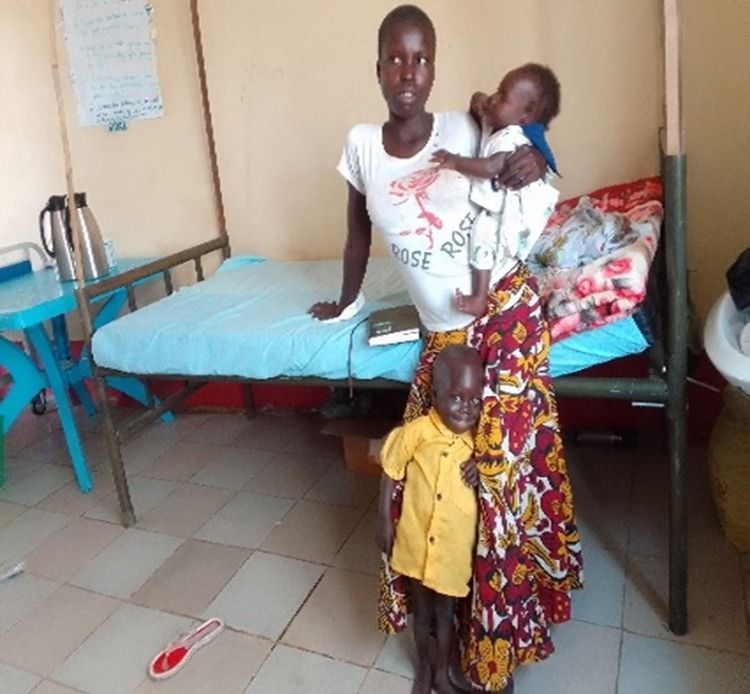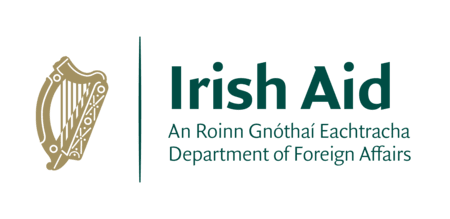 Stories
Stories
July 24, 2024 • 4 min read
In South Sudan, chronic insecurity, armed conflict, and climate change have led to crisis levels of food insecurity in many parts of the country. Erratic rainfall, devastating floods, and protracted droughts are crippling agricultural yields and displacing entire communities, and the country's fragile health system is struggling to cope.
Community Nutrition Volunteers
To combat chronic malnutrition in South Sudan, GOAL engages and trains Community Nutrition Volunteers (CNVs). These volunteers play a crucial role in helping GOAL identify and prevent child malnutrition. The volunteers are equipped with MUAC (middle-upper arm circumference) tapes, and using these devices, the CNVs closely monitor the growth of children within their own community.
Fighting Child Malnutrition
In South Sudan, nearly 50% of the population is chronically malnourished, including 1.65 million children under the age of 5 and 870,000 pregnant or breastfeeding women. Worryingly, only 4% of children in South Sudan receive enough food or nutrients to meet their basic dietary requirements. To address the high rates of malnutrition in Kajo Keji County, GOAL began integrating nutrition into an existing health programme funded by the European Union and Irish Aid, with in-kind support from UNICEF.
The programme – implemented in partnership with a local NGO in South Sudan, TRI-SS – promotes breastfeeding children for up to six months, followed by a balanced, affordable, and locally sourced complementary diet for up to 24 months. To complement this programme, GOAL trains CNVs to detect cases of malnutrition within the community, trace and follow up with defaulters (families whose children began the programme but failed to complete it) and promote preventative measures.
Lou’s Story
Lou is a two-year-old South Sudanese returnee living in Gogorosua, a remote village in Kajo-Keji County. Before Lou was born, his mother was displaced by a civil war in South Sudan. His family sought refuge in Uganda before returning to South Sudan six years later. However, upon their return, Lou’s family was displaced again—this time by inter-communal conflict, spurred by intense resource competition as a result of climate change. This placed them at an increased risk of food insecurity.
“After the war, everything disappeared. We are living now just by the grace of God,” Modong says. “We try to provide for our children, but we aren’t able to. This breaks our hearts. A child wants something, but we can’t provide it.”
Lou was diagnosed with severe acute malnutrition (SAM) by a CNV during a routine MUAC screening. His symptoms included vomiting, diarrhoea, severe muscle wasting, and oral sores. He was also lethargic, unable to walk or stand, and refusing to eat. Lou was immediately referred to a GOAL-supported stabilisation centre in Kajo-Kejo Civil Hospital and discharged 16 weeks later. Upon discharge, Lou was given one more portion of ready-to-use therapeutic food (RUTF), an energy-dense, micronutrient paste used to treat children experiencing severe malnutrition and wasting. Then, he was referred to a Targeted Supplementary Feeding Programme for continued treatment and follow-up.

Lou with his mother and younger sibling in a GOAL-supported stabilisation centre in Kajo-Keji County.
Strengthening Health Services
The provision of healthcare in South Sudan has been repeatedly disrupted by years of conflict and civil unrest. Even basic health services are not easily accessible for the most vulnerable communities in South Sudan – and the services that are available are often poor quality. With funding from the European Union and Irish Aid, GOAL is strengthening health systems in Kajo-Keji County and facilitating access to high-quality medical services.
“Access to health services is a long-standing challenge in my village,” Modong explains. “The nearest health facility could not provide all services as expected, and going up to the stablisation [centre], which is around 60 kilometres from my home, was not easy for me. However, I remain thankful for GOAL for training the community nutrition volunteers who are in my village… [they] were very helpful in making early detection and referral of my son possible. There were no challenges I faced during my stay at the stablisation centre… The services provided were all up to date.”
Educating Mothers on Nutrition
The absence of adequate maternal healthcare services in South Sudan also means that many pregnant women deliver their babies at home, without a birth attendant present. These mothers miss out on critical postnatal services, including information on breastfeeding and child nutrition.
When Lou was admitted to the stabilisation centre for treatment, his mother received training on diet diversity and age-appropriate feeding. Modong was encouraged to cook using seasonal vegetables like okra, eggplant, and groundnut, in addition to staple foods like cassava, maise, and various grains.
“I now know the immediate causes of malnutrition… how to identify [it] and how it can be prevented through the daily health education sessions provided by the staff at the stabilisation centre,” Modong says, proudly.
Now, Modong is a GOAL Community Ambassador. The training she received has empowered her to lead awareness campaigns on Maternal, Infant, and Young Child Nutrition (MIYCN) and Infant and Young Child Feeding (IYCN). Her local Mother-to-Mother Feeding Group meets bi-weekly to discuss and share insights on child nutrition practices.
Thanks to funding from the European Union and Irish Aid, Lou is now a happy and healthy toddler.
Learn more about GOAL’s work in South Sudan.


